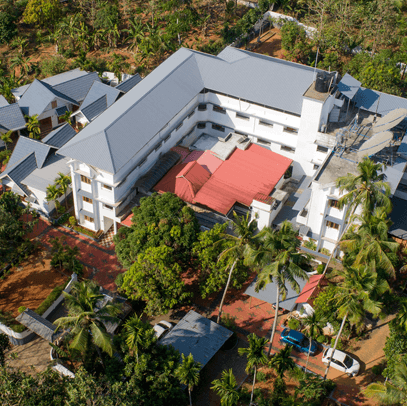The Gateway to Government Teaching Careers: Exploring the Scope of _FGEI Jobs_** in Pakistan**

When it comes to seeking a stable, respectable, and rewarding career in Pakistan’s public sector, FGEI jobs often rank high on the list of aspirants. The Federal Government Educational Institutions (FGEI) under the Ministry of Defence offer promising teaching and administrative positions across the country. For many educated professionals in Pakistan, especially women, these positions present a golden opportunity to serve in government schools and colleges with excellent benefits and job security.
At Paradigm Shift, a leading platform focusing on the socio-political and employment landscape of Pakistan, we delve deep into the opportunities and structures that govern jobs like those offered by FGEI. In this detailed guide, we’ll take you through what FGEI jobs are, the recruitment process, eligibility criteria, benefits, and why more and more Pakistanis are now targeting this career path.
What Are FGEI Jobs?
The term FGEI jobs refers to employment opportunities within the Federal Government Educational Institutions Directorate, which operates under the Ministry of Defence. These institutions were established to provide quality education to the children of armed forces personnel and civilian employees of the Ministry of Defence.
Over the years, the FGEI system has expanded to include hundreds of schools and colleges spread across Pakistan, particularly in cantonment and garrison areas. This expansion has resulted in consistent demand for qualified teachers, lecturers, and administrative staff in various subjects and capacities.
Why Choose a Career in FGEI?
There are several compelling reasons why one should consider applying for FGEI jobs:
-
Job Security: Being a government job, FGEI employment comes with the kind of job security that few private sector roles can match.
-
Attractive Salary Packages: Salaries are competitive and include annual increments, housing allowances, medical benefits, and pensions.
-
Career Progression: Employees in FGEI have a clear promotion pathway, often supported by departmental training and exams.
-
Work-Life Balance: As with most teaching jobs, working hours are fixed, and employees enjoy public and academic holidays.
-
Postings Nationwide: Since FGEI institutions are spread across Pakistan, candidates have the flexibility of being posted close to their hometowns or preferred regions.
Recruitment Process for FGEI Jobs
The process to apply for FGEI jobs is streamlined and transparent, usually conducted through the official FGEI website or via recruitment portals like the National Testing Service (NTS) or Federal Public Service Commission (FPSC), depending on the job grade and nature.
Here’s how the process generally unfolds:
-
Advertisement: Jobs are advertised in leading newspapers and on the official website of FGEI.
-
Online Application: Interested candidates must apply online within the given deadline, uploading their CNIC, academic certificates, and passport-sized photographs.
-
Written Test: Candidates are usually required to pass a written exam covering English, General Knowledge, Pedagogy (for teaching posts), and subject-specific content.
-
Interview & Document Verification: Shortlisted candidates are called for an interview and document verification.
-
Merit List & Appointment: Final selection is made based on merit, written test performance, and interview scores.
Eligibility Criteria
Eligibility for FGEI jobs varies by position but generally includes:
-
Educational Qualification: Minimum of a bachelor’s degree for teaching roles; master’s degrees or professional certifications (e.g., B.Ed/M.Ed) are preferred.
-
Age Limit: Typically, the age limit ranges between 18 and 30 years, with age relaxations as per government policy.
-
Domicile: Must be a Pakistani citizen with a valid domicile certificate from any province or region.
-
Experience: Some administrative roles or senior teaching posts may require prior experience in teaching or government service.
Types of FGEI Jobs Offered
The FGEI Directorate offers various roles, each with its own responsibilities and requirements:
1. Teaching Posts:
-
Elementary School Teachers (EST)
-
Trained Graduate Teachers (TGT)
-
Lecturers for Intermediate Colleges
-
Subject Specialists (Mathematics, Physics, Biology, etc.)
2. Administrative and Support Staff:
-
Clerks (LDC/UDC)
-
Librarians
-
Lab Assistants
-
Account Officers
These roles not only require specific qualifications but also a sense of dedication and willingness to serve in diverse environments, from urban garrisons to remote cantonments.
How to Prepare for FGEI Jobs Exams
Given the competitiveness of FGEI jobs, preparation is key. Here are some effective strategies:
-
Syllabus Review: Always begin by understanding the test syllabus. Focus on subjects relevant to the post, including pedagogy and current affairs.
-
Past Papers: Study previous years’ papers to understand question patterns and difficulty levels.
-
Online Resources: Websites like Paradigm Shift and dedicated YouTube channels provide mock tests and expert guidance.
-
Time Management: Practice time-bound tests to build speed and accuracy.
Gender Inclusivity in FGEI Jobs
One of the most progressive aspects of the FGEI system is its commitment to gender equality. A significant portion of its teaching staff comprises women, and specific institutions cater to female students. Recruitment policies are inclusive, ensuring women are encouraged to apply and empowered through opportunities for training and career development.
Regional Diversity and Posting Flexibility
From the northern valleys of Gilgit-Baltistan to the southern military cantonments of Sindh, FGEI jobs offer a diverse range of postings. This geographical spread makes it possible for people from various provinces to serve their communities closer to home. Additionally, FGEI staff can request transfers on humanitarian or family grounds, making the job adaptable to life circumstances.
Digitalization and Reforms
In recent years, the FGEI Directorate has embraced digitalization. The recruitment process, once marred by inefficiency, is now managed through online portals. Moreover, the introduction of digital classrooms, online attendance systems, and smart boards in many FGEI institutions highlights a promising move toward modernizing Pakistan’s public education system.
Challenges Faced by FGEI Employees
While FGEI jobs are appealing, they are not without challenges:
-
Transfers: Sudden transfers can be difficult, especially for those with families.
-
Infrastructure Gaps: Some FGEI institutions in remote areas still lack adequate facilities.
-
Slow Promotions: Like other government sectors, promotions can be delayed due to bureaucratic processes.
Despite these issues, most FGEI employees remain committed due to the benefits, prestige, and sense of purpose associated with the job.
Final Thoughts
In a country like Pakistan, where youth unemployment remains a pressing issue, FGEI jobs offer a beacon of hope. They represent more than just employment—they signify nation-building, especially in the crucial area of education. By empowering communities through knowledge, FGEI educators are shaping the future of Pakistan, one classroom at a time.
At Paradigm Shift, we believe that educating the public about these opportunities can transform lives. Therefore, we continue to highlight such avenues for employment in the public sector, urging our readers to stay informed, apply strategically, and prepare diligently.
As the demand for qualified teachers and support staff grows, the opportunities in FGEI jobs will only increase. For those looking for a stable, meaningful, and growth-oriented government career in Pakistan, the Federal Government Educational Institutions may just be the perfect start.








